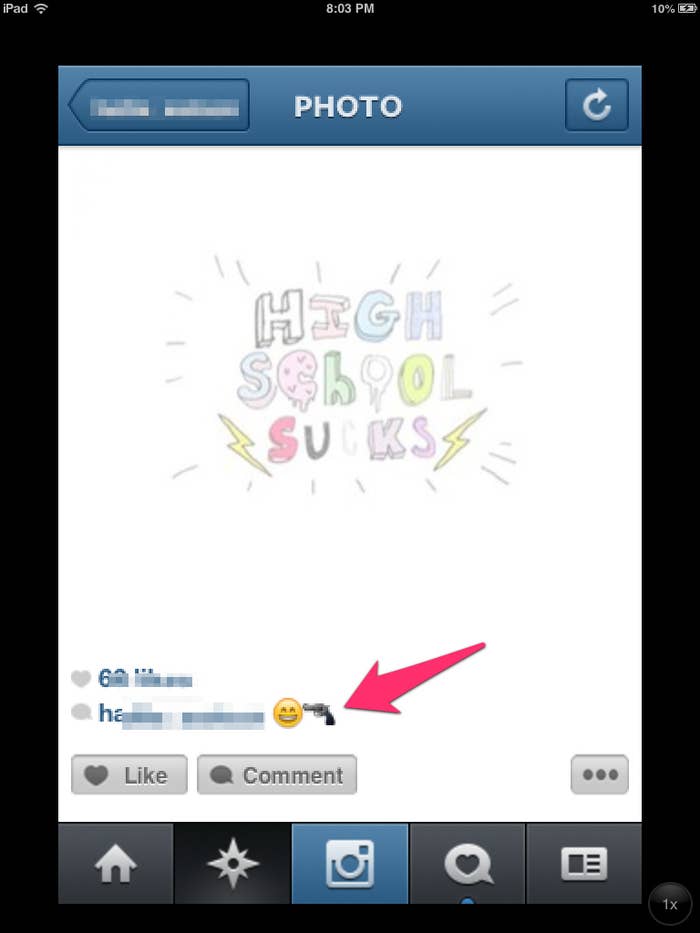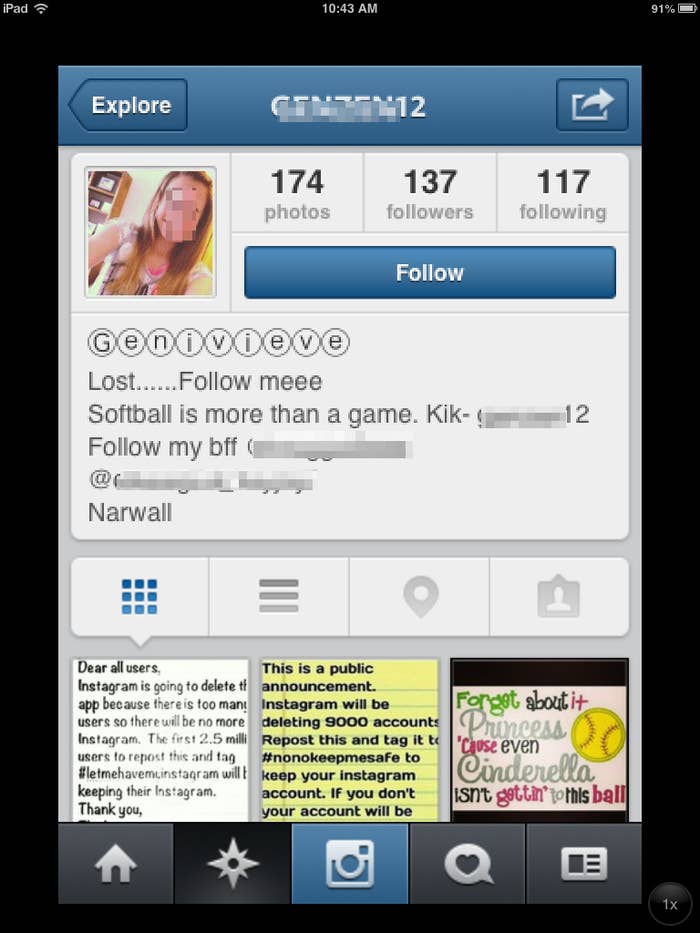
Young users, surveys say, are losing interest in Facebook. Many claim they want to avoid the inane posts, lengthy and irritating comments, and "drama." But on teen refuge Instagram, some young users are improvising something familiar — even Facebook-like.
You might say they're purposely recreating the very things that teens complain about on Facebook. Instagram, technically, is a very simple service. But many younger users have found ways to add complexity. They're turning photos and comments into status updates, vectors for gossip and memes. Instead of listing music or movies under "Interests," they just post photos, often screencaps, of the things they like. They're adding that dreaded "drama."
This is what a 12-year-old's Instagram wall looks like:


The most common trend is the introduction of text via image. Users write posts with the notes app, take a screenshot, post it, and voilà, improvised status update. Some even post photos of notes written out with pen and paper. They also put up screen shots of text-message conversations and memes, and, just like on Facebook, participate in endless comment threads.



The biggest draw for young users is the relative absence of adults. Since many parents and teachers have been slow to catch on to Instagram, it allows kids to post whatever they want, away from the eyes of stalking parents. They don't have to follow any rules their parents have set about Facebook.
Instagram, which is owned by Facebook, shares the same 13-year-old age limit, but many parents don't realize that (and Instagram isn't very vigilant in enforcing it). For younger kids, Instagram becomes an early entry to social media.

Since Instagram isn't tied to a user's real name, it is harder to find people's accounts. There is a greater feeling of anonymity. That, coupled with the lack of supervision, can lead to Mean Girls behavior.
"It is harder to find someone on Instagram than on Facebook, so people think it is more private. I can't believe people are posting some of these things," says Miki N., a 15-year-old who attends Sacred Heart, an elite all-girls' school in Manhattan. Her younger sister's group of friends used it as a proxy-Facebook when their parents said they were too young for Facebook.
"They were saying terrible things about their parents and friends," says Miki. "It wasn't directed to one person, they weren't naming anyone, but they were abusing it, and posting things that are not allowed on Facebook. It got out of hand."
Miki's sister and her friends got busted by their parents and had to delete a lot of their posts.
Plenty of others are still going strong.



Some even use it as a version of Ask.fm:


Of course, once parents catch on, Instagram's ersatz Facebook may fade — or just shift elsewhere once again.
